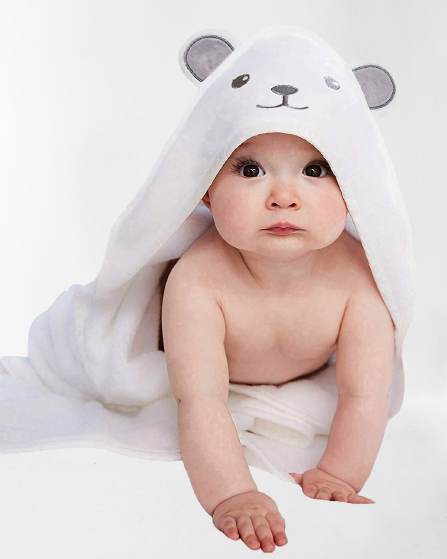HOW TO TAKE CARE OF A ONE MONTH OLD BABY - NEWBORN BABY CARE
One Month Old Baby
Your baby is one month old!
What an incredible first month for both you and your baby! It's hard to believe how much your daily routine has changed since this lovely (and confusing!) person entered your life and turned it upside down. Your one-month-old baby is entirely reliant on you, and you are completely devoted to her. You're probably more confident in your mothering skills now than you were a month ago. And for good reason: you're following your instincts, prioritizing baby, and researching 1-month-old baby development and parenting advice, which is proof enough that you're doing a fantastic job!
Feeding a 1-Month-Old baby
If you're breastfeeding, your 1-month-old is probably still feeding every two to three hours; if you're formula feeding, once every three to four hours. You've probably figured out how to read your baby's cues to tell when she's hungry—you might even be able to recognize her own distinct "hungry cry."
What Is the Appropriate Amount of Food for a One-Month-Old?
If you're breastfeeding, don't be concerned about the amount of milk you produce. It's impossible to measure it when it comes straight from the tap! When your baby is full, she will stop, move away from your breast, or fall asleep. Baby will soon become a more efficient feeder, able to consume more milk in less time, so you may notice you spend a little less time feeding in the coming months. If you're formula feeding, your baby will probably drink a four-ounce bottle every four hours or so.
This Month, What Can Your Baby Eat?
The baby should still be fed either formula or breast milk, or a combination of the two. Is it possible for a one-month-old to drink water? Most doctors advise waiting until your child is at least 6 months old before giving her water. Your breast milk or formula provides her with plenty of fluids! There may be some exceptions, so consult your child's pediatrician first.
How Much Does a One-Month-Old Sleep?
One-month-old babies sleep 15 to 16 hours per day on average. Depending on the baby, three daytime naps are typical, with eight-and-a-half hours of sleep likely coming at night (with interruptions, of course!)
Doesn't this sound like your kid?
It's fine—just like adults, different babies have different personalities! Any sleep concerns should be discussed with your pediatrician, who will be able to provide you with tailored advice, but here are some common 1-month-old sleep concerns:
A One-Month-Old Isn't Sleeping. There are a variety of reasons why it may be difficult to get your baby to sleep. She may be overstimulated, uneasy, or simply want to cuddle with you. To help your baby sleep, try some of these tricks, and if they don't seem to work, consult your pediatrician.
A one-month-old baby spends the entire day sleeping. Some babies have a condition known as "day/night confusion," in which they confuse day and night. Some people may be suffering from an illness that causes them to sleep more than usual. Others could simply be drowsy! Try to figure out what's causing your baby's sleepiness and then decide if it's a problem—if your baby is otherwise healthy, eating and peeing normally, it's probably nothing to be concerned about.
Checklist / Tips for a One-Month-Old
Bring your baby to her one-month checkup.
If you're breastfeeding, talk to your doctor about taking vitamin D drops.
Vaccination: Between the ages of one and two months, the American Academy of Pediatrics recommends a second dose of the Hepatitis B vaccine.
Make an appointment for the baby's two-month checkup.
At around six weeks after giving birth, go to your postpartum checkup (sooner if you had a c-section).
Make plans with your partner for a date night (even if the baby is sleeping).
Take a picture of your baby when he or she was one month old.





Comments
Post a Comment